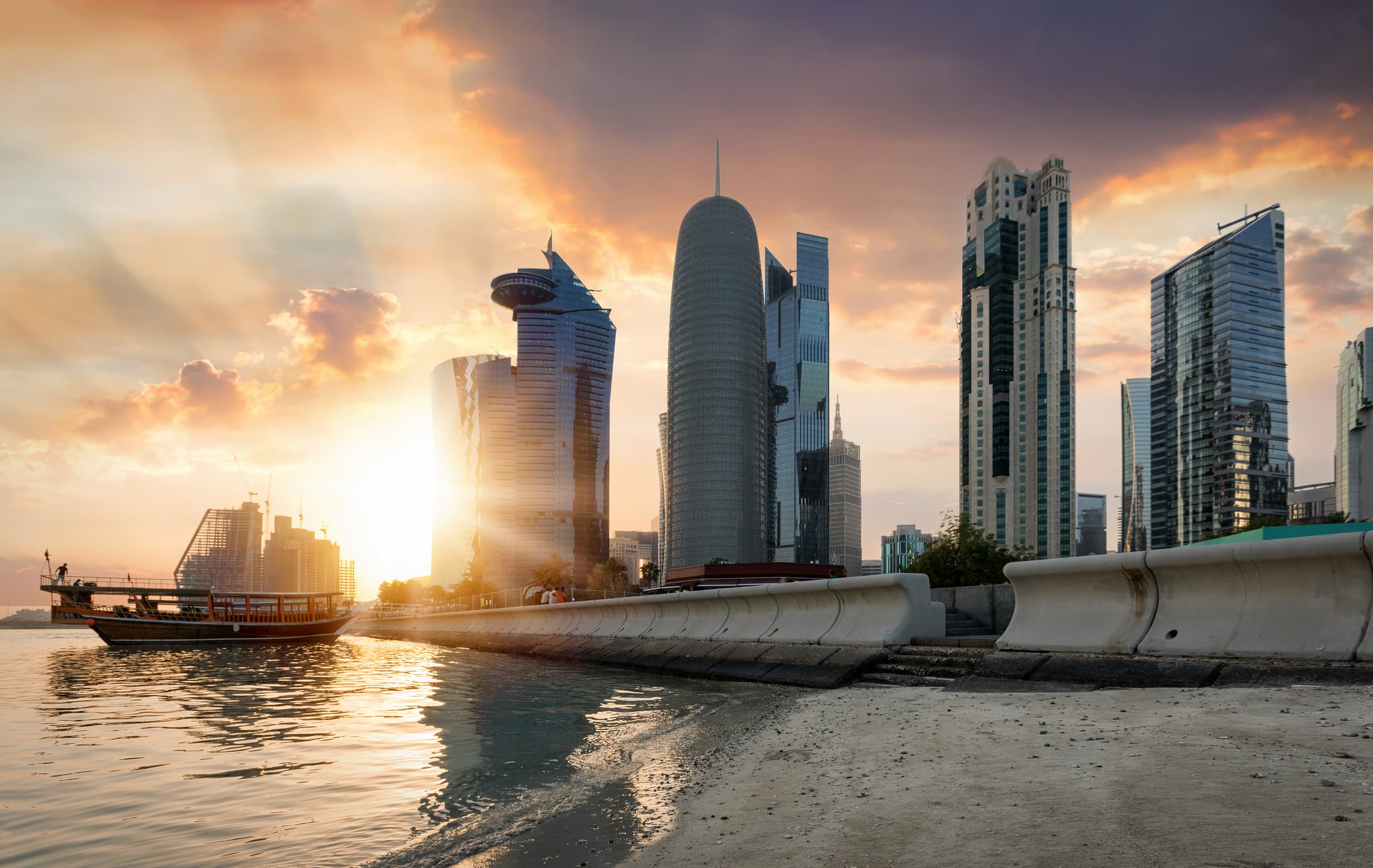The Qatar Financial Center is trying to attract $ 25 billion in foreign direct investment flows by 2022, its CEO Yousuf Al-Jaida told CNBC in an exclusive interview on Wednesday.
It comes a week after Saudi Arabia reestablished diplomatic ties with neighboring Qatar, ending more than three years of blockade against the tiny gas-rich nation.
Reconciliation means a stronger and more powerful Gulf Cooperation Council, said Al-Jaida.
“I think the impact will be positive on trade, which means that countries will work together,” he added.
Saudi Arabia, along with the United Arab Emirates, Bahrain and Egypt, sealed land, sea and air borders with Qatar in 2017, after accusing Doha of links to terrorism. Qatar has denied these charges.
The thawing of tensions – just weeks before the end of President Donald Trump’s term in the White House – is a major shift in policy in the region.
Competition for the GCC financial center
Doha competes with global financial centers in the region, including Dubai, in the United Arab Emirates, and Saudi Arabia’s capital, Riyadh.
Dubai, one of the transport and tourism centers in the region, is facing new competition from Riyadh.
Saudi Arabia is trying to attract multinational companies to the capital as part of Crown Prince Mohammed bin Salman’s ambitious Vision 2030 plan to diversify the kingdom’s economy.
Doha skyline, Qatar
Sven Hansche | EyeEm | Getty Images
Al-Jaida said that Doha’s advantage over its rivals is the effort to develop Islamic finance and fintech, as well as financial services in general.
The financial center’s ambitious FDI goal – along with the goal of creating 10,000 new jobs and more than 1,000 companies by 2022 – will be driven by the GCC’s easing, he said.
“From the point of view of QFC, multinational corporations are practically based on the entire GCC and that will mean more liberal travel, more access to markets. It will mean more foreign direct investment to Doha. So we are very optimistic about this,” said Al- Jaida.
We are working towards a better future for the entire region, so everyone is optimistic.
Yousuf Al-Jaida
CEO, Qatar Financial Center
The six-nation GCC is a political, economic and social alliance that includes Saudi Arabia, the United Arab Emirates, Bahrain, Kuwait, Oman and Qatar.
According to the World Bank, Qatar’s economy is expected to grow 3% in 2021 and is the best among GCC countries.
Qatar, one of the richest countries per capita in the world, is also geared towards sports. The country is scheduled to host the World Cup in 2022 and has submitted a request to the International Olympic Committee to join the “ongoing dialogue” about the possibility of hosting the Games in 2032.
Gulf stretch
Ties between Gulf neighbors are deep and the blockade has left a gap that has affected trade across the GCC.
According to the Brookings Institution, flights between Qatar and its Gulf neighbors totaled 70 per day before precipitation. The airline industry, hard hit by the global pandemic, could benefit significantly from cooling tensions.
Before the blockade, trade flows between Qatar, Saudi Arabia and the United Arab Emirates were in the billions and in the millions with Bahrain, the think tank said.
Al-Jaida told CNBC that there is still more work to be done to build trust between Qatar and its neighbors in the Gulf and Egypt, but “that is behind us and we are working for a better future for the entire region. Everyone is optimistic. “
